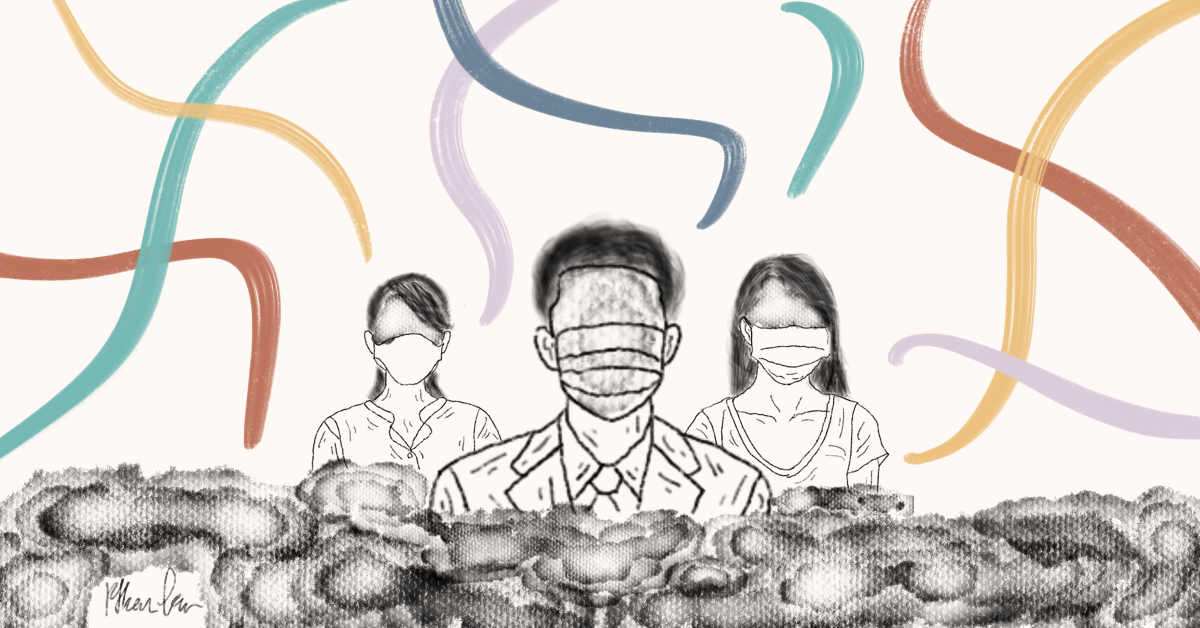By Sarah //
As a university student approaching graduation, the prospect of entering the workforce feels daunting, especially given my past struggles with mental health. Various anxieties flood my thoughts: What if I can’t cope with the stress? What if I don’t like my colleagues, or worse, if they don’t like me? What if working life is as dreary and joyless as many have described?
The workplace is often depicted as the “real world”, where the stakes are high and the demands even greater. I can’t help but sense the pressure to consistently present my absolute best self and always have things under control. It doesn’t help that there continues to be stigma attached to mental health issues in professional settings.
I wonder how many of us will hesitate to open up to future colleagues or supervisors about our struggles, fearing we might be seen as less resilient or capable.
Recently, I found a unique space to explore some of my anxieties: Crossroads, an interactive story game by The Tapestry Project SG. Set in a fictional workplace, the game invites you to “choose your own adventure” as one of the three main characters – all of whom are young professionals at various stages of their careers. Every choice you make as the chosen character will lead you down a different narrative path. Immersing myself in the perspectives of these diverse characters granted me fresh insights. Now, without giving away any spoilers, here are three lessons I gleaned from Crossroads:
1. Mental health challenges can affect anyone.
It’s easy to feel isolated in your struggles. I’ve personally experienced the downward spiral of comparing myself to others, fixating on my perceived shortcomings, and questioning why I couldn’t do better. In those moments, it felt like everyone has it all figured out except for me.
But here’s the truth: every single person, even your boss or that cool colleague you admire, faces their own challenges (even if they don’t show it). It’s essential to remind ourselves that, at some point, everyone was in your shoes – young, inexperienced, new to the job. They’ve made their fair share of mistakes and harboured their own set of insecurities. Mental health challenges are complex and unique to each individual, but we’re all human. Let’s not be too hard on ourselves for not being perfect – because nobody is.
2. Be honest with yourself and others.
The first step towards finding a solution is acknowledging that there’s a problem. It’s easy to downplay or even ignore our struggles when they arise, as facing reality can be more frightening. Yet, this only allows the situation to deteriorate over time. Recognising and accepting our feelings empowers us to take positive steps, which may sometimes include seeking professional help.
Being open with others about our challenges can also be helpful. Of course, it’s crucial to exercise prudence and judgement, but open communication with colleagues or superiors can be highly constructive. Although vulnerability may feel uncomfortable, sharing our experiences can open the door for others to support you, be it through lightening your load or simply offering a listening ear.
3. Equip yourself with tools to cope.
The bulk of my anxieties revolve around uncertainty. What if this happens? What if that doesn’t happen? What if this person reacts a certain way? Unfortunately, life is full of what-ifs that we can neither control nor predict.
The key is to stop worrying about what we can’t control, and focus on what we can. One way to do this is to develop sustainable, healthy habits and self-care techniques that work for us. This could be as simple as adopting a healthier diet, or dedicating a set time each week for relaxation. Other intentional ideas include keeping a journal to clarify our thoughts, and confiding in a friend who can tell you when you’re overthinking things. Even in tough times, we can learn to see our mistakes as part of a personal journey – they’re lessons that help us handle future challenges better and open doors to new opportunities.
Life often leads us to crossroads – moments where various paths converge, each waiting for our choice to walk down one path or the other. While each crossroad might appear daunting, consider it merely one page in the book that is our life. There’s ample space for our story to unfold, and we hold the pen!
Sarah is a 22-year-old university student who cares deeply about mental health advocacy, having experienced mental health struggles firsthand. She believes in the transformative power of storytelling, finds hope in everyday acts of kindness and is constantly amazed by the resilience of the human spirit.
Read more of our Tapestry Stories here.
Want to bring Crossroads to your organisation? Request a workshop here.
Illustration by Ethan.

